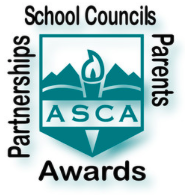Finding speech pathologists for students not always the easiest task
Posted on 9 December 2021 by adminis
Local Journalism Initiative Reporter
The road can be difficult and inconsistent for students in need of the services of a speech pathologist, especially in Alberta, said Brandi Rai, Executive director of ASCA.
“The Alberta School Councils’ Association has heard from parents that access to Speech Pathologists is not always easy or consistent for Alberta’s students and we know that this is another barrier families face while trying to support their learners. Removing those barriers should not come at the expense of families, and solutions should be integrated into educational access,” said Rai.
Though Camille Quinton, Director of Inclusive Learning with Prairie Rose Public Schools cannot speak to any definitive shortage of speech pathologists available to students in Alberta, she has heard this sentiment before. Though one of the division’s own pathologists is taking a one year leave beginning in January, there will still be programming in place for students in need.
“Our program is primarily focused on early interventions. So typically, we serve students, mostly in junior kindergarten, through grade one, and then grade two and above, if there is an identified need to go on, then we would, we may look at that. So we do a combination of sometimes direct therapy with an assistant we will do in class programming, and we do teacher and parent consultation,” said Quinton.
The process often begins in the classroom, said Quinton, with a teacher noticing that something might not be quite right when communicating with a student.
“Usually what happens is a teacher or a parent makes a referral,” said Quinton. “So sometimes, depending on the age, if there is a student who’s already in programming, or in one of our schools, the teacher usually identifies that there is a concern, and brings that forward to the speech therapist. They made them look at doing a screening after they connect with parents, of course, to get permission, they’ll do a screening and then determine whether or not there’s a need to do a further assessment. If it’s from parents, sometimes we get a referral from parents or medical professionals or Alberta Health Services, if they are looking at coming into early entrance programming, or if they’ve been identified outside of school. And so not a consistent referral source, but probably our biggest referral source would be the classroom teacher.”
About 280 students are currently being assisted in some way to improve their speech and language skills, said Quinton. Many of these students primarily do this work in the classroom, as opposed to in direct therapy.
“With our case loads, being able to do direct therapy, we aren’t able to do direct therapy with all the students. And so it is more of a consultation where the programming and the suggestions that we are recommending are taking place in the classroom with the teacher, the EA, whoever’s in there, to help that on a daily basis,” said Quinton. “We see more benefit from that actually, instead of just, you know, once a week or once every couple of weeks kind of thing referred through Apolo programs. So, again, there are students that do receive direct help, either through our therapists or our therapy assistant, we do have one therapy assistant as well, that helps support our program. And so that’s, it all kind of depends on where the speech therapist determines is the most appropriate programming, we let them make that decision.”
There are all supports available within Grasslands School Division, where all students entering Kindergarten in the division are screened by their Speech Language Pathologists, to see if further assessment or services are warranted with the permission of parents, and will continue to receive services as long as it is warranted, said Ruth Tkachyk, Early Learning Coordinator at Grasslands.
Leave a Reply
You must be logged in to post a comment.
